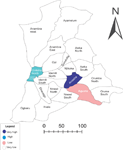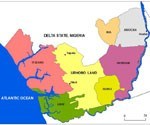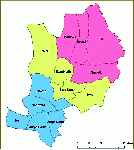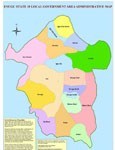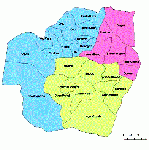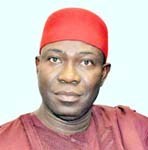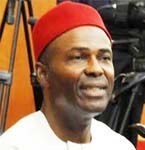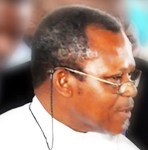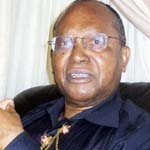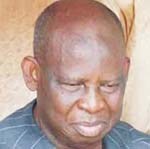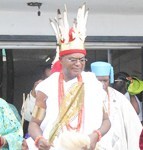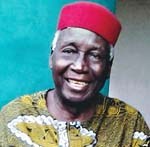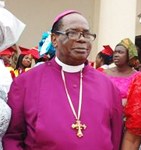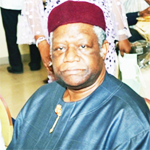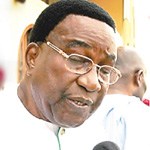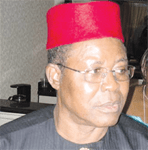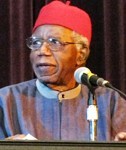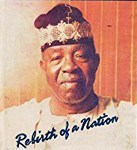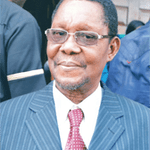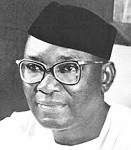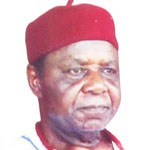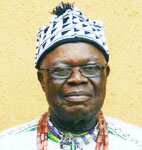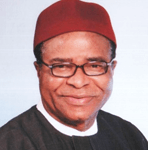Death Traps in Igboland
Category:Igbo and the rest of NigeriaIgboland is in danger. She is in search of a soothing balm to rub off all the sours she suffered from her numerous predicaments and woes. Indeed, the litany of the misfortunes buffeting South East states that habor the Igbo communities in Nigeria, is quite legendary. The problems are replete with erosion menace, terrible road network, … Below the ladder or orgy, are untimely death, leadership crisis, poverty and other myriads of mind boggling challenges that combined to make Igbo nation a not too comfortable abode to inhabit.
Erosion
Anambra State has been categorized as one of the most ecologically scratched enclaves in Nigeria. This is so because research has proved that erosion has made nonsense of the state by destroying homes, markets, church buildings, school premises, town halls and other public centers and institutions. A recent survey showed that erosion is still threatening about 4844km2 area of the state. Governor Willie Obiano, during the Silver Jubilee celebration of the state informed reporters that his administration had identifies at least 950 erosion sites ravaging the area. He lamented that with over 950 gully erosion sites in a land mass of 4,844 square kilometers, Anambra would be washed away by erosion. “In truth, no other state in Nigeria has been ravaged by erosion on the same scale as Anambra. If the images that we generated from our aerial photography are anything to go by, then the world must come to our rescue before it is too late. Indeed, we are raising this alarm in the hope that the attentive world will give Anambra State a chance to survive as a geopolitical entity that deserves its continuous membership of the human race,” Obiano stated. He added that “the tragedy of gully erosion is that its impact is usually so colossal that it is almost impossible for any state, no matter how rich, to tackle it alone. We are emboldened by the fact that many nations who were faced with the threat of extinction of this nature or worse in the past were not left to their fate by a caring world. We have no doubt that our case will not be different.” While acknowledging the series of interventions by the Nigerian Erosion and Watershed Management Project (NEWMAP) and the great assistance the state had received from the World Bank in fending off the menace, Governor Obiano revealed that the World Bank has commenced work on the erosion sites in Ugamuma-Obosi, Ikenga-Ogidi, Enugwu-Ukwu and Abidi-Umoji. In Imo State, erosion sites are Amucha Community in Njaba. The Nigerian Erosion and Watershed Management Project (NEWMAP), a World Bank-sponsored Program associated with erosion control in seven states of the country said it had identified 11 major erosion sites for urgent attention in Imo State.
The State Program Coordinator of NEWMAP, Mr. Victor Anueyiagu said, five of them had been given urgent attention just as the other seven locations would equally be addressed. The areas under construction are Eziala Obizi gully erosion site, Umueshi gully erosion site, Iyi-Uzo Ihioma-Ogbaeruru gully erosion site, Umunumo Mbano gully erosion site and Urualla gully erosion site. Things have gone so bad for the people of Ozuomee Urualla in Ideato North Area Council of the state that the lawmaker representing it in the state house of assembly had appealed to both the state and national governments to come to their rescue.
The member representing Ideato North, Hon. Arthur Egwim, said gully erosion had cut off the people of and was on the verge of sacking the entire community. “Most communities in this area have been abandoned since everybody now live in fear of being submerged by this natural disaster”, he pointed out. In all there are about 30 erosion sites in Imo State. It is not better in Abia State. According to a paper tagged Mapping gully erosion in Abia State, Nigeria using Geographic Information Systems (GIS) and remote sensing techniques, by Nnabugwu O. Uluocha and Ibeabuchi Uwadiegwu Department of Geography, University of Lagos, Nigeria dated August, 5 2015, From the result of the analysis done, Umu Nneochi has the highest value of 1082.58 tons/acres in 1986 and 1120.59 547.54 ton/acres (in 2003).In Ikwuano,154,98 ton/acres and 164.27 ton/acres was lost to soil erosion in 1986 and 2003 respectively. Isuikwuato ranks second with 568.45 tons/acres in 1986 and 594.65 tons/acres in 2003.In Ohafia, 544.89 ton/acres was lost in 1986 and 538.90 ton/acres was lost in 2003. Bende experienced an increase in soil loss from 525.73 ton/acres (in 1986) to Uluocha and Uwadiegwu. here are twelve (12) communities in the State with the highest values of soil loss (≥1000 tons/ha) and severe erosion risk. The communities are Amanta (1556.38 tons/ha), Ndiorieke (1455.25 tons/ha), Abala (1371.49 tons/ha), Owaza (1325.88 tons/ha), Amauru (1200.78 tons/ha), Amuzukwu (1154.74 tons/ha), Ohuhu-Nsulu (1152.95 tons/ha), Ekenobizi (1101.37 tons/ha), Amauke (1093.34), Uturu (1060.8 tons/ha), Umuiroma (1053.11 tons/ha), and Akoli (1029.01 tons/ha). Overall, the results reveal that 40% of the State experiences severe form of soil erosion and about 32% experience high soil erosion; 17.51%. Erosion in Enugu State during the time of Governor Sullivan Chime reached an alarming proportion that the governor called for assistance, urging NEWMAP help matters out. According to reports, the governor noted that efforts by state and local government areas as well as constituencies to control gully erosion, before now were at best partially or temporarily effective for reasons that included improper road designs, inadequate drainage systems and poor solid waste management. Chime was quoted as saying that other reasons that caused the erosion in Enugu included destructive and unsustainable land use practices that removed protective vegetation cover, over grazing, deforestation, cultivation of marginal lands and uncontrolled mining for building materials and climate change challenges.
Bad Roads
To really appreciate the deplorable state of roads in the South East, an Igbo, Michael Onyebuchi posted a traveler’s diary on Premium Times thus: my wife and I travelled down to the East via the Asaba airport (story for another day) en-route Arochukwu my home town. Our journey was quite smooth between Asaba and Nnewi town although we went through a rough patch as we negotiated our way towards the Onitsha – Owerri road.
The trip from Asaba to Nnewi took approximately 30 minutes. It was from Otolo Nnewi, a community in Nnewi town that the nightmare began. From Otolo Nnewi to Aro-ndizuogu – Okigwe took us four hours to negotiate. For those of us who do not know this axis, this is a stretch of road that is less than 100km or thereabout.
This road is an inter-state road that links Anambra to Imo State. It connects Nnewi, Ideato, Aro-Ndizuogu and Okigwe. I have never seen anything like that road in my life. This road was worse than a nightmare, it is not a road. After surviving the torture called Nnewi to Okigwe it was another horror for us to drive from Ohafia to Arochukwu. Ohafia to Arochukwu is about 50km or less, but it took us two and half hours (2.5 hours) to travel between that distance because of the state of the road. On our way back, we had to go through Enugu because we could not afford the luxury of the torment we went through the Nnewi – Okigwe road. To my utmost surprise the Enugu – Port Harcourt Express Road is a death trap killing and maiming people, with fallen trucks and broken down vehicles all over the place called ‘Expressway’. We also became victims of it because one of our break pipes got severed while trying to avoid a deep gully. What is really going on in the East? What are the governors doing? I know they might have started grading some of these roads by now so that when their state citizens return home for the yuletide celebrations they will say our governor is ‘working’. Why can’t they fix the roads in the East? It is a big shame, in fact very embarrassing that one cannot travel smoothly within the South – Eastern region. No road between Anambra and Imo state, none between Imo and Abia, none between Imo and Enugu and none between Enugu and Anambra State. The sad thing is you will hear they are all Federal roads. Please who are the people commuting on these roads? It is the citizens of these states. Onyewuchi said it all. As it is with the roads leading to his Arochuwku from Asaba, so also it is with other roads in the South East to wit: Onitsha –Awka – Enugu Road; Owerri –Port Harcourt Road, Owerri –Mbaise – Umuahia Road, Owerri –Okigwe Road, Owerri –Aba Road; Umuahia –Ikot Ekpene Road, Umuahia –Bende- Ohafia- Arochuwku Road, Aba –Ikot Ekpene- Calabar Road and several others. On daily basis, valuable goods worth millions of naira are destroyed even as lives are lost due to bad roads in the South East and precious time wasted as commuters try to calibrate their ways through the terrible federal and state roads.






